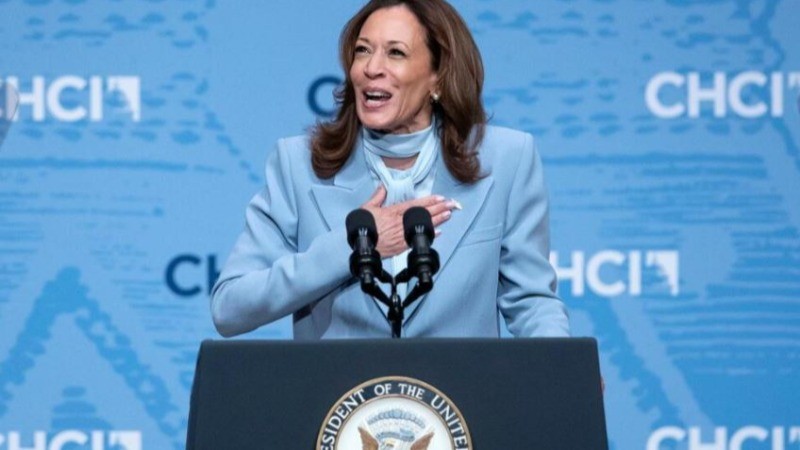
Democrats are ramping up their efforts to connect with Polish Americans as Kamala Harris and Donald Trump vie for crucial votes in key battleground states for the upcoming presidential election.
Harris aims to leverage the Polish American community's historical distrust of Russia, highlighting Trump's reluctance to fully support Ukraine during recent discussions. On Wednesday, Harris' campaign organized a national call with Polish American supporters, urging them to host local events to further spread the campaign's message.
While Polish Americans may not represent a large voting bloc, many reside in critical "blue wall" states. Approximately 784,000 live in Michigan, 758,000 in Pennsylvania, and 481,000 in Wisconsin—states Harris is focusing on this week.
"We're talking about an election where just a few thousand votes could swing the outcome," said Tom Malinowski, a former Democratic congressman who was born in Poland.
Filip Jotevski, who oversees ethnic community outreach for Harris' campaign, said that if Trump returns to power, "he'll sell out Ukraine," citing Trump's history of building a close relationship with Russian President Vladimir Putin. Meanwhile, Trump plans to visit a Polish American shrine in Pennsylvania for the unveiling of a monument dedicated to the anti-communist Solidarity movement.
During a recent debate in Philadelphia, Trump avoided expressing clear support for Ukraine, stating, "Negotiate a deal... because we have to stop all of these human lives from being destroyed."
Harris responded by saying that if Trump had been president during the invasion, "Putin would be sitting in Kyiv with his eyes on the rest of Europe."
Some members of the Polish American community were surprised but pleased to see their concerns brought into the national debate. "She knew what she was talking about," said Tony Pol, a 67-year-old retired fire chief in Erie, Pennsylvania. "If Ukraine goes down, then Poland could be next, and that’s worrisome."
Many in the community share concerns about Russia. Gosia Dodi, originally from Poland and now living in Michigan, agreed with Harris that a loss for Ukraine could put Poland at risk. "Trump’s fondness for Putin is dangerous for Poland," she said.
The Polish American community, which has deep-rooted historical ties to the fight against communism, became a focal point during World War II when Poland was left under Soviet control. Poland gained its independence in 1989 and later joined NATO in 1999. Many Polish Americans see U.S. support for NATO and strong transatlantic ties as critical.
"Both parties need to commit to supporting Poland, Ukraine, NATO, and security in Eastern Europe," said Timothy L. Kuzma, who leads the Polish Falcons of America.
Trump’s previous suggestions about potentially withdrawing the U.S. from NATO and his calls for allies to increase their defense spending have raised concerns in the Polish American community. Trump had warned that if the burden wasn’t shared, the U.S. might not fulfill its treaty obligations.
Pete Alibali, a Polish immigrant and longtime Democrat, said he fears for Poland’s safety if Ukraine loses the war. "Putin is a predator, a continuation of the Soviets," Alibali said.
Polish Americans have shifted between supporting Democrats and Republicans over the years. Trump won their support in 2016 but lost ground in 2020, with many backing Joe Biden. Malinowski believes that Trump’s visit to the Polish American shrine shows he's worried about losing their votes this time around.
Some, however, remain staunchly supportive of Trump. Tom Kolano, a Republican from Pittsburgh, is encouraged by Trump's relationship with Polish President Andrzej Duda. "I’m not worried Trump will abandon Ukraine," he said, adding that Poland would likely play a strong role in influencing U.S. policy.
Others, like John Laka from Wisconsin, believe Trump is stronger on foreign policy. "I don’t have much confidence in Harris as a leader," he said, while acknowledging that Russia remains a long-term threat.